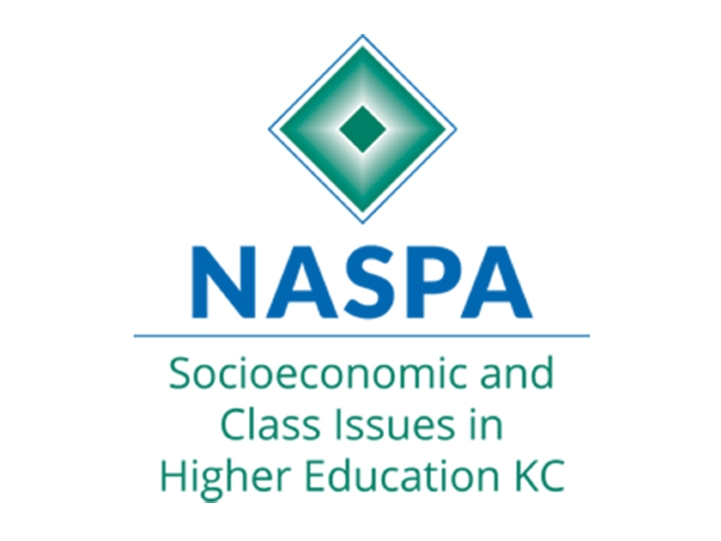
Celebrating Black History Month - A Look at Dr. King and Social Class
Equity, Inclusion and Social Justice Socioeconomic and Class Issues in Higher Education
February 25, 2021
For February, our Knowledge Community wanted to celebrate Black voices and the intersections of Black identity with socioeconomic and class identities. Specifically, we wanted to uplift the voice of one of the greatest Black scholars and activists, Rev. Dr. Martin Luther King, Jr. and nuggets of knowledge that can shape our practice within student affairs. Dr. King as an activist advocated for the civil rights of several marginalized populations including low-income and people experiencing homelessness.
Education has been seen as a liberator and avenue for achieving justice. In an article titled “The Purpose of Education,” Dr. King shared that, “It seems to me that education has a two-fold function to perform in the life of man and in society: the one is utility and the other is culture. Education must enable a man to become more efficient, to achieve with increasing facility the legitimate goals of his life.” As a Black individual who grew up low-income, I very much resonate with this statement. I grew up in rural Alabama to parents that were born before the Civil Rights Act of 1964 was passed. Neither of my parents had the opportunity to attend higher education and I entered college academically unprepared based on the K-12 educational system I was a part of. I was pushed towards college and saw it as an opportunity to break the poverty cycle that had impacted my family for several generations. College was my liberator and there are a number of our Black and low-income students who may have that same expectation. Institutions of higher education have often upheld oppressive systems, but can serve as liberators with us challenging the system.
Dr. King once said, “True compassion is more than flinging a coin to a beggar; it is not haphazard and superficial. It comes to see that an edifice which produces beggars needs restructuring.” Essentially this quote talks about the system that produces and reproduces poverty. Additionally, this quote challenges people to critically think about what it means to provide support for others. Charity and providing funds is one way to support individuals experiencing poverty, but what does it mean to start eradicating the system that allows for poverty to exist? With intersectionality in mind, Black people have also been funneled into a lower socioeconomic status. Years of systemic racism, including segregation, redlining, and gentrification, have created an astronomical wealth gap when comparing Black people to their white counterparts. Lack of financial literacy, home ownership, and governmental representation are also factors contributing to sustaining this issue. Within higher education, there are also opportunities for us to move the needle on what services we are providing to support the success of Black, low-income students at our institutions.
Below are a couple of questions to begin thinking through how you’re supporting Black, low-income students at your institutions:
-
How are your educational programs and initiatives assessing cost and financial aspects to be accessible for low-income students?
-
Are there barriers for students to access and understand financial resources available to them like financial aid?
-
Is your institution separately serving marginalized identities, particularly thinking about low-income, first-generation, and students of color, or is your campus targeting these students as a group?
-
Knowing that being Black and low-income at times intersects, but not always, how are you aligning your for students at the intersection and for students who aren’t?
-
What are the retention and persistence rates for Black, low-income students at your institution and are there support programs in place to assist in raising these rates?
For more opportunities to learn about Dr. King’s scholarship on social class, we have created a list for further reading that can be found here.
References:
Brown, A., & Atske, S. (2021, January 22). Black Americans have made gains in U.S. political leadership, but gaps remain. Pew Research Center. https://www.pewresearch.org/fact-tank/2021/01/22/black-americans-have-made-gains-in-u-s-political-leadership-but-gaps-remain/
Bump, P. (2014, April 1). The Source of Black Poverty Isn't Black Culture, It's American Culture. The Atlantic. https://www.theatlantic.com/politics/archive/2014/04/the-source-of-black-poverty-isnt-black-culture-its-american-culture/359937/
Harshbarger, D. A. P. A. M. (2019, October 14). America’s formerly redlined neighborhoods have changed, and so must solutions to rectify them. Brookings. https://www.brookings.edu/research/americas-formerly-redlines-areas-changed-so-must-solutions/
History.com Editors. (2021, January 25). Civil Rights Act of 1964. HISTORY. https://www.history.com/topics/black-history/civil-rights-act
King, M. L., & Washington, J. M. (1986). A Testament of Hope: The Essential Writings of Martin Luther King Jr. (1st ed.). Harper & Row.
McCargo, A., & Strochak, S. (2018, February 26). Mapping the black homeownership gap. Urban Institute. https://www.urban.org/urban-wire/mapping-black-homeownership-gap
McIntosh, K. E. M. (2020, February 27). Examining the Black-white wealth gap. Brookings. https://www.brookings.edu/blog/up-front/2020/02/27/examining-the-black-white-wealth-gap/
Reeves, R. A. K. E. V. (2017, August 15). The intersection of race, place, and multidimensional poverty. Brookings.
https://www.brookings.edu/research/the-intersection-of-race-place-and-multidimensional-poverty/
Systemic Inequality: Displacement, Exclusion, and Segregation. (2019, August 7). Center for American Progress. https://www.americanprogress.org/issues/race/reports/2019/08/07/472617/systemic-inequality-displacement-exclusion-segregation/
“The Purpose of Education.” (2019, October 29). The Martin Luther King, Jr., Research and Education Institute. https://kinginstitute.stanford.edu/king-papers/documents/purpose-education
Yakoboski, P., Lusardi, A., & Hasler, A. (2020, September). Financial literacy, wellness and resilience among African Americans | TIAA Institute. TIAA Institute. https://www.tiaainstitute.org/about/news/financial-literacy-wellness-and-resilience-among-african-americans